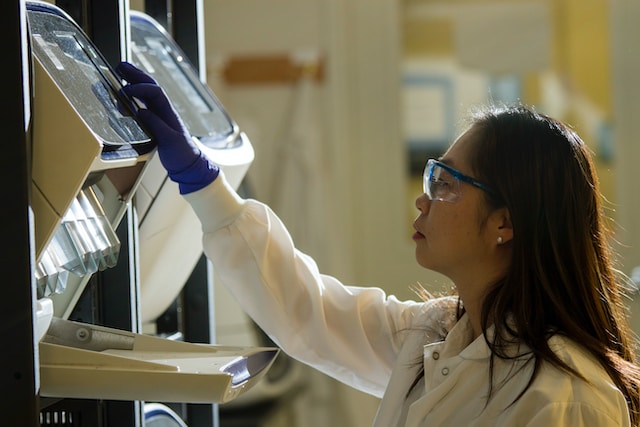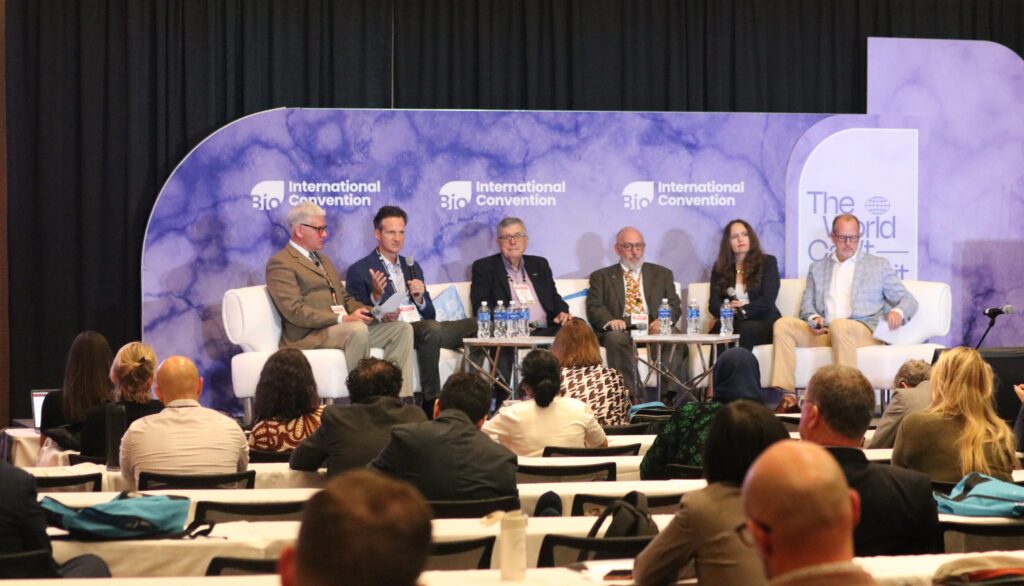In a groundbreaking move towards advancing gene therapy research and treatment options for rare diseases, the Foundation for the National Institutes of Health (FNIH) announced the selection of eight rare diseases for inclusion in the Accelerating Medicine Partnership Bespoke Gene Therapy Consortium (AMP BGTC) clinical trial portfolio. This announcement brings hope to patients and families affected by these conditions, who have long awaited innovative and personalized treatment approaches.
The AMP BGTC is a public-private collaboration between the National Institute of Health (NIH), the U.S. Food and Drug Administration (FDA), leading biopharmaceutical companies, and non-profit organizations. The consortium “aims to streamline the regulatory approval process by establishing minimum standards for manufacturing, product analytical testing, and pre-clinical testing,” says the announcement. “All of this information will be provided to the public with standard templates and an instructional ‘development playbook’ at no cost.” In doing so, the consortium aims to create a “repeatable pathway” that every gene therapy can follow.
The consortium aims to develop and advance gene therapies tailored to the unique genetic makeup of individuals with rare diseases, which affect more than 30 million people in the United States. By harnessing the power of gene editing and personalized medicine, the consortium aims to revolutionize the treatment landscape for these often-neglected conditions.
The selection of the eight rare diseases for the clinical trial portfolio was made after a rigorous evaluation process considering factors including scientific rationale, clinical need, and potential impact of the proposed gene therapies. The chosen diseases span a range of conditions, each presenting its own set of challenges and unmet medical needs.
What diseases are in the clinical trial portfolio?
Among the selected diseases is Charcot-Marie-Tooth disease type 4J (CMTD4J), a rare inherited form of progressive peripheral neuropathy with a clinical presentation that often mimics chronic inflammatory demyelinating polyneuropathy.
Currently, there is no cure for CMTD4J. The inclusion of the disease in the clinical trial portfolio represents a significant milestone in the pursuit of a gene therapy solution for this debilitating condition.
Jocelyn Duff, a former healthcare provider and the executive director and co-founder of CureCMT4J, says the inclusion of the disease in the portfolio offers new hope for her youngest daughter, who was diagnosed with CMTD4J in 2016.
“The efforts of the BGTC not only help to bring families with rare diseases together but take the responsibility and burden away so we can redirect our focus on being parents,” Duff told Bio.News.
The other diseases chosen for the BGTC Clinical Trial Portfolio include:
- Congenital Hereditary Endothelial Dystrophy
- Morquio A Syndrome
- Multiple Sulfatase Deficiency
- NPHP5 Retinal Degeneration
- Propionic Acidemia (PCCB)
- Retinitis pigmentosa 45
- Spastic paraplegia 50
The inclusion of these diseases in the portfolio highlights the commitment of FNIH and its partners to highlight the diverse needs of the rare disease community. And the potential of gene therapy to address the underlying cause of disease offers a promising avenue for improved outcomes and quality of life.
What’s next for the Bespoke Gene Therapy Consortium?
The FNIH, along with its industry collaborators, will now work closely with researchers, clinicians, and patient advocacy groups to design and implement clinical trials for the selected rare diseases. The goal is to gather crucial data on the safety and efficacy of the bespoke gene therapies, ultimately paving the way for regulatory approval and widespread availability of these cutting-edge treatments.
Dr. Courtney Silverthorn, Associate Vice President of Translational Sciences at the FNIH, expressed her enthusiasm for the collaboration in an interview with Bio.News.
“Over 175 people have come together across the entire consortium effort bringing a wide array of subject matter expertise and great discussion to the table with the aim to bring diversity across the portfolio,” she says.
Since the launch of the consortium in the fall of 2021, interest within the academic and business communities has boomed showcasing the broad applicability of the BGTC across the disease spectrum. “On the non-profit side, people wanted to have the ability to shape and steer the direction of the consortium,” continues Dr. Silverthorn.
The dedication of the individuals involved cannot be understated. “It is also important to recognize that even organizations representing diseases not reflected within the clinical trial portfolio continue to support the consortium knowing that its work will benefit their disease communities, as well,” she adds.
The FNIH’s commitment to rare disease research and treatment maintains a multi-factorial goal of bringing attention to the class of diseases where “rarity” is considered a disease with fewer than 200,000 patients, no existing commercial program support, and low incidence and prevalence. By bringing attention to these diseases, there is the added benefit of highlighting potential areas of misdiagnoses within the clinical setting.
Dr. Silverthorn expresses the desire to maintain patient engagement while going forward. “We would like to have the patients and families involved in the process as part of the cross-functional teams connected to the BGTC as progress is made toward clinical trials,” she says. The overall hope of everyone involved is that the consortium’s efforts can provide a resource to a much broader patient community.
As the world eagerly awaits the outcomes of the Accelerating Medicine Partnership Bespoke Gene Therapy Consortium trials, the selection of these eight rare diseases offers renewed hope and optimism for the millions of individuals living with these devastating conditions. With each step forward in gene therapy research, the path toward personalized medicine becomes clearer, bringing us closer to a future where rare diseases are no longer insurmountable obstacles but manageable conditions.




